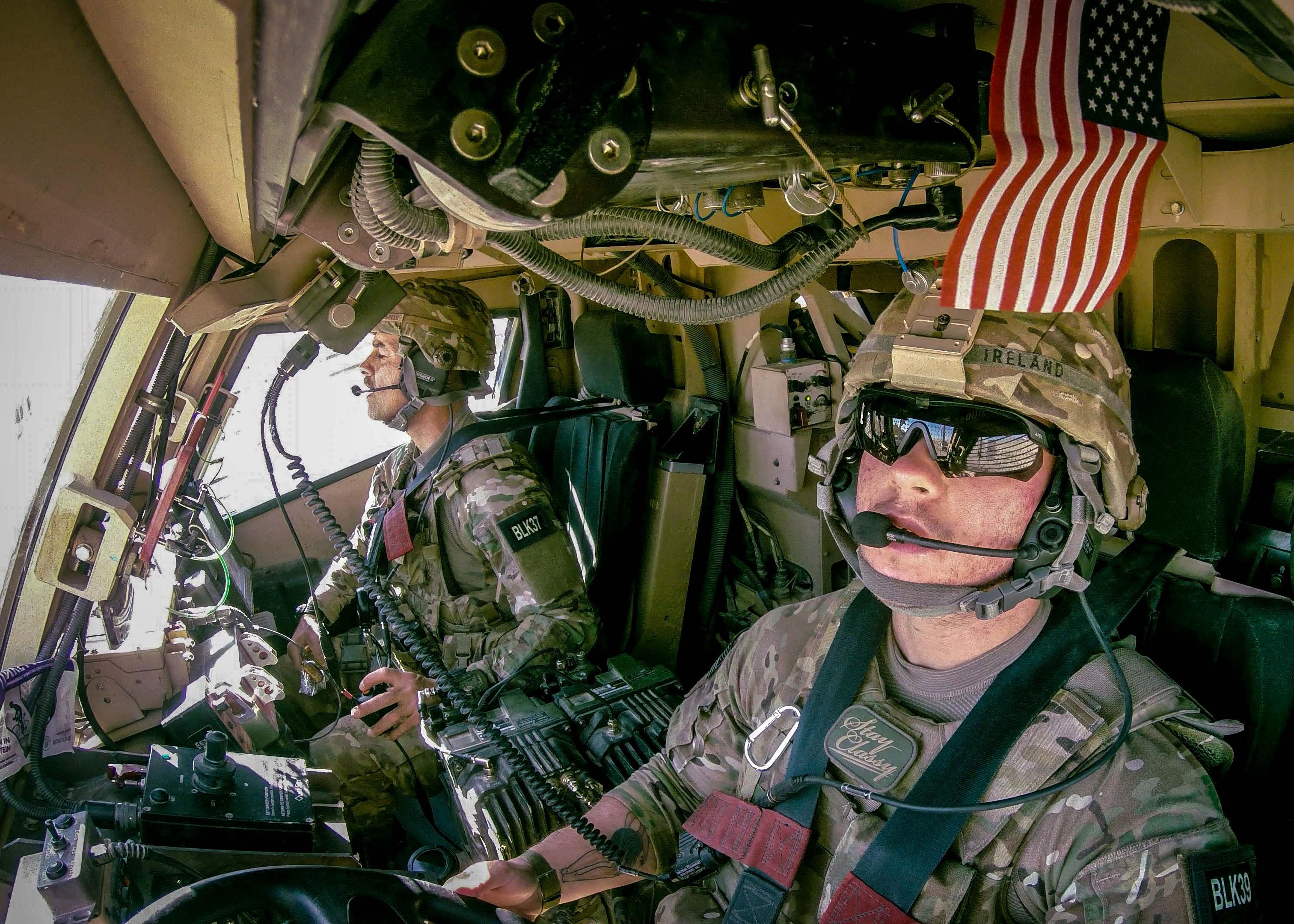
Directors Gabe Silverman and Fiona Dawson stopped by Solzy at the Movies to discuss their new documentary, TransMilitary, which premiered at the 2018 SXSW Film Festival.
Thanks for joining us today. How are things treating you?
Fiona Dawson: Thank you so much for all your cheerleading and support of TransMilitary. We’re so pleased that you like it.
Congrats on your new film, TransMilitary, premiering at SXSW and taking home an Audience Award for the Documentary Feature Competition. Can you talk about how much of an honor it is for the film to have been so well-received with the festival audience?
Fiona Dawson: Essentially, this film is made to reach an audience engage with an audience and touch hearts and minds. Garnering the audience award is truly the greatest honor we could possibly hope for after having our premiere at SXSW. The film is about people and it’s for people. I can’t imagine anything better coming out of SXSW than this.
Gabe Silverman: When the subjects of our film started this process years ago, transgender rights were much more precarious position. Being able to be so vulnerable on camera was a massive risk for them. I think that the audience award validates that what they did ended up being really important and it also validates the bravery that they showed by coming out in this documentary. We’re just very pleased by the warm reception.
What were some of the things people said after screenings as they came up to talk after the film?
Fiona Dawson: I have a story that I haven’t yet had a chance to tell Gabe and Jamie. After the third screening—of course, most of our team had already gone home—I was there at the third screening and I did the Q&A by myself. Afterwards, I stayed behind and greeted people that had more questions that we didn’t have time to ask and answer publicly. There was this one who came up who was a bit taller than me. They presented their gender in a masculine way. They came up to me very softly—but also in front of other people—looked me in the eye and said, “I just want to let you know that, first of all, thank you so much for this film. I just finished serving in the army. I’m a recent veteran. Not too long ago, I identified as being transgender myself. I just wanted to say thank you so much for making this film because it’s going to help me to move forward.” There’s really no other words other than to thank them for their courage in coming out to me in front of this group of people. I just gave them a massive, massive hug. I just found that was like the icing on the cake moment. This was before we found out we won the audience award. In my mind, right then and there on that Wednesday afternoon, this is exactly one of the compelling reasons we had to make this film. I found it very touching.
Gabe Silverman: We heard from different types of people. There were a lot of cisgender people that came up after the film and gave us hugs and were touched by it. At the end of the day, this was just a film about young people and their families who are just trying to do right by the country and by themselves. It wasn’t politicized or fetishized in any way. I think overall, we were just very blessed by the warm reception. Your story is much nicer, Fiona.
In making the documentary, what was something that you found the most surprising to learn?
Gabe Silverman: I think that living in Washington, often times, things are always seen through the prism of partisanship—either one side of the aisle or the other. What’s been really great about this process and especially since the last eight months, this has really proven to be a bipartisan issue. At the start of this, there had been many politicians who had tried to make this an issue. Now you see that the latest poll is 68% of Americans believe that transgender American can serve in the military if they are qualified to do so. You see people like Senator John McCain (R-AZ), Senator Richard Shelby (R-AL) and Senator Joni Ernst (R-IA), who are all very conservative Republicans coming out in support of transgender service in the military. I think that people are proving to be much more nuanced and accepting than a lot of voices on cable television would have you believe. That’s been a really pleasant surprise.
Logan and Laila Ireland were featured in your previous short film, Transgender, at war and in love. Were they instrumental in getting the other subjects to participate in TransMilitary?
Fiona Dawson: Actually, the other subjects are all part of the same group. We all developed our friendships at the same the same time. We met El a little bit later in the process. Of course, the friendship and camaraderie between outside of the camera is important. I wouldn’t necessarily say that they were instrumental although I do feel that the fact that they had seen how we told Logan and Laila’s story in the short film kind of helped validate their decision. They realized we would be making their film with the human story at the heart of it rather than trying to ostracize or stereotype as we’ve seen in some other media with trans people.
Gabe Silverman: I, 100%, agree with what you said. Being the subject of a documentary is such an intrusive and vulnerable process. You have to add that this was at a time when transgender rights were at a precarious moment. I think that having gone through the process with Logan and Laila helped Jenn and El understand that we were trying to tell their story with respect and dignity.
What is the biggest message you want audiences to take away from TransMilitary?
Gabe Silverman: I think that, for me, that if America really wants to live up to its fundamental live up of being a meritocracy, we have to start judging people based off of their ability, not based off of their gender identity. The hope that our service members demonstrate that.
Fiona Dawson: I agree with what Gabe just said. My hope is it will go beyond looking at how trans people are treated but how we are treated differently accordingly to our gender per se. Like why do we have rules and regulations for how men and women express their gender. My hope is that there can be a ripple effect that can go into questioning social constructs and social norms regarding gender for trans and cis people.
What’s in store for the film’s future?
Gabe Silverman: At the moment, we are playing a few more film festivals in the next few months. We are now working with our sales agents at Cinetic Media to try and bring this to a larger platform accessible to a broad audience.
Thanks again for your time and congrats on the film.
Fiona Dawson: Thanks, Danielle, so much. We appreciate it.
TransMilitary premiered during the 2018 SXSW Film Festival as a part of the Documentary Feature Competition.



